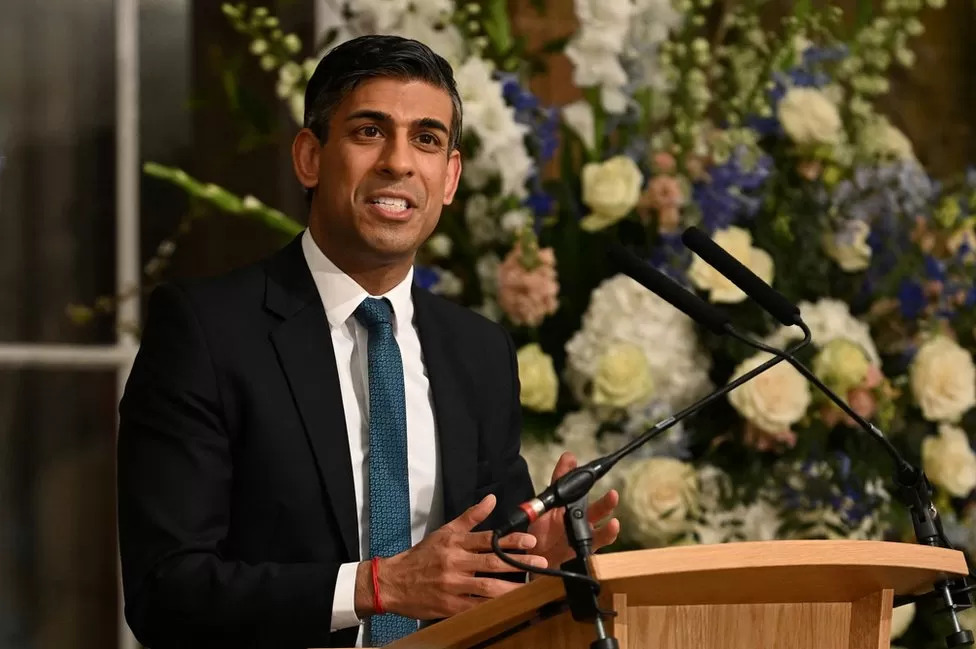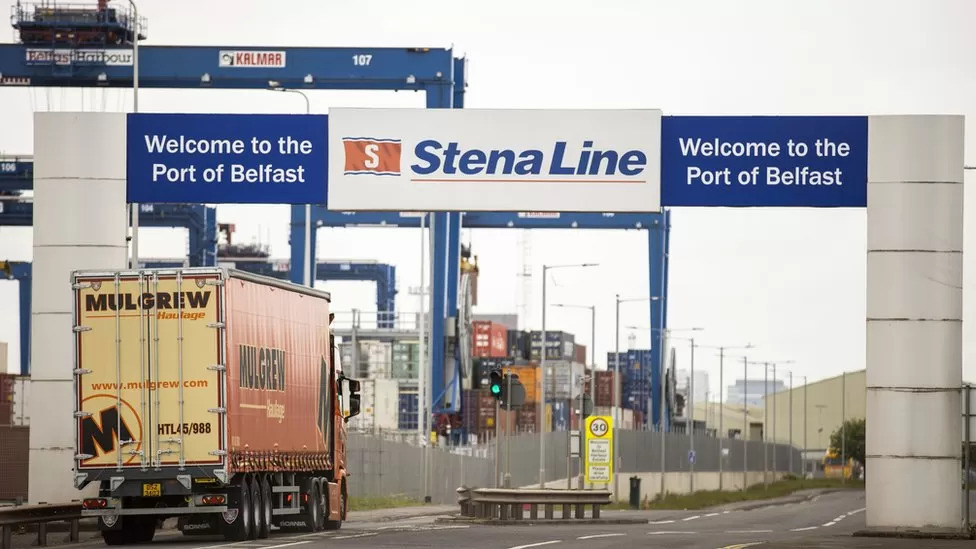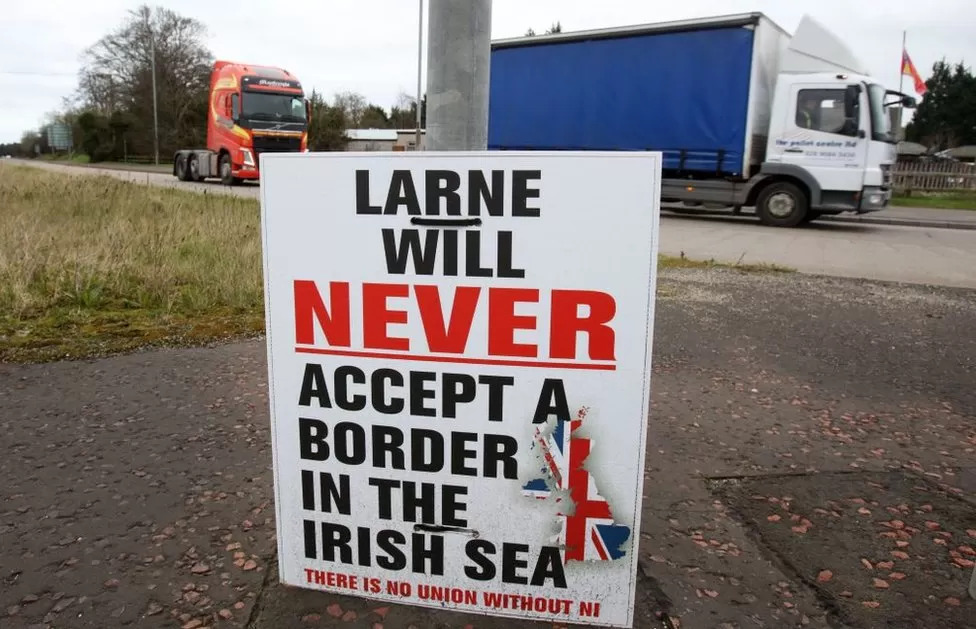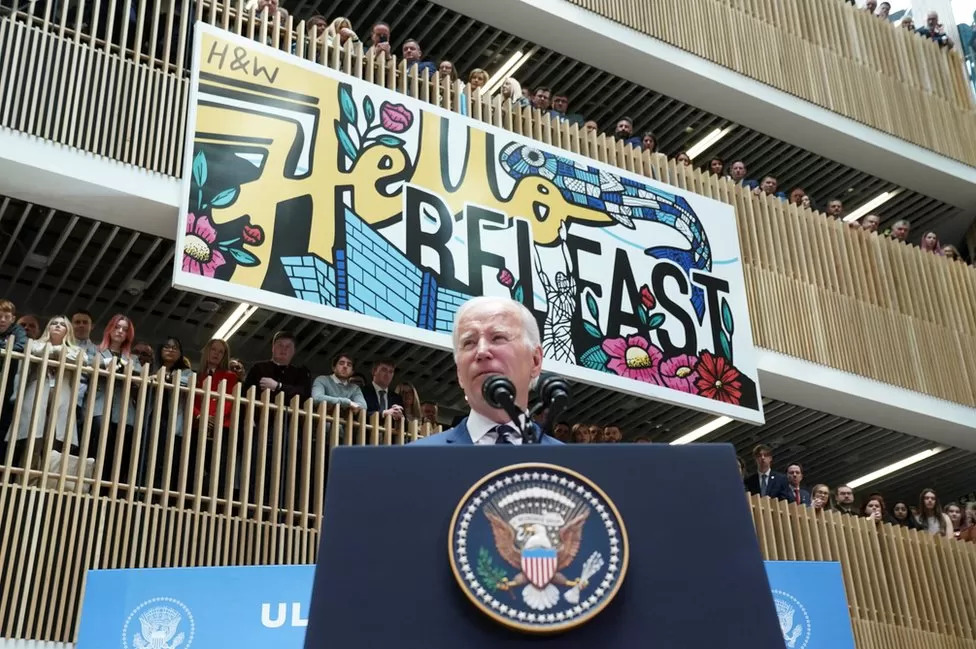The Northern Ireland Investment Summit is taking place in Belfast.
But what is it and what do the organisers hope to achieve?
It is essentially a big sales pitch for Northern Ireland, trying to persuade international businesses to invest or reinvest.
About 120 investors and businesses from around the globe are attending the event, which has been organised by the UK Department for Business and Trade and the Northern Ireland Office, together with Northern Ireland’s inward investment agency Invest NI.
Similar events in the past have involved senior executives from international firms lauding their experience in Northern Ireland to an audience that includes businesses which are considering investing.
The event is a showcase for innovative local businesses in areas like cyber security and green manufacturing.
Why is it happening now?
Prime Minister Rishi Sunak promised the summit in April as he took part in an event to mark the 25th anniversary of the Good Friday peace agreement.
He said: “The biggest thing we can do to improve people’s standard of living and secure a prosperous and thriving Northern Ireland, is economic growth.”

Northern Ireland’s new Brexit deal, the Windsor Framework, is another important part of the context.
After he signed that deal in February, Mr Sunak said it would make Northern Ireland “the world’s most exciting economic zone” because of the unique dual market access it has to the UK and the EU.
What is this unique proposition?
The Windsor Framework, like its predecessor the Northern Ireland Protocol, keeps Northern Ireland inside the EU’s single market for goods.
That is primarily to prevent the hardening of the border between Northern Ireland and the Republic of Ireland.
But it also means Northern Ireland manufacturers have better access to the EU than companies in other parts of the UK.
Northern Ireland companies do not face new post-Brexit bureaucracy when exporting goods to the EU.
Additionally there are no checks and controls on Northern Ireland goods being sold to the rest of UK.
That means that if an American manufacturer wanted to serve both the UK and EU markets it could set up in Northern Ireland to minimise customs and regulatory bureaucracy on exports.

The UK government has flip-flopped on how valuable this dual market access is.
Under the original protocol it was talked up as providing “the best of both worlds”; later as the relationship with the EU soured the government minimised the potential benefits.
Now the prime minister has given it full-throated backing.
Northern Ireland business leaders have long called for the government to push the benefits of dual market access and will see the summit as a chance to do that.
Does Northern Ireland attract much investment?
Last year Stormont’s Department for the Economy published research from the Wavteq consultancy which considered the recent performance in attracting investment and a forecast for the next few years.
It suggests that between 2015 and 2020 Northern Ireland had been “successful in terms of attracting quality foreign direct investment” (FDI) and ranked 4th among European regions in terms of the percentage of its FDI accounted for by high-tech sectors.
It also suggested that Northern Ireland had demonstrated a comparative advantage in attracting investment in software and business services.
Another recent analysis by fDi markets found there were 20 FDI projects to Northern Ireland announced by 19 different companies in the year to August 2023.
The US was the main source market for investment with eight projects, accounting for 40% of total projects.
What’s the broader political context?
The summit was announced at an event to mark the anniversary of the Good Friday Agreement but the key institution of that agreement, the Northern Ireland Assembly, is still in the deep freeze.
Devolved government has not been fully functioning since February 2022 when the largest unionist party, the Democratic Unionist Party (DUP), withdrew in protest at the Brexit deal.
The DUP says it undermines Northern Ireland’s place in the UK and that the Windsor Framework has not remedied their concerns.

The UK government would have liked devolution to have been restored by now with a first minister and a deputy first minister leading the conference.
The Ulster Unionist leader Doug Beattie wrote to the Northern Ireland secretary asking for the summit to be postponed until later in the year when he believes there is a better chance of devolution returning.
Trade and Investment Minister Lord Johnson told the BBC he hoped the event would act as a “coalescing factor” for Stormont political parties to work together to restore power-sharing.
“Businesses do want to see stability and the government hopes that will happen but there’s still a huge amount of interest in the economy here,” he added.
“The civil service has been performing very well to make sure the investment climate is strong so I’d like to focus on the positives of this summit and use it as a beacon for the future.”
What’s the international context?
President Joe Biden says US firms are willing to pump “billions of dollars” into the Northern Ireland economy if there’s more political stability.
But it is US domestic industrial policy which changed the context for global investment decisions.

Last year Mr Biden signed into law the Inflation Reduction Act and the Chips and Science Act.
It offers more than $400bn in subsidies, tax credits and loans for businesses which are prepared to build factories focused on strategic industries like microchips, batteries and renewable energy.
That makes it harder to attract major US manufactures to invest outside their home market.
This year an advisor to Chancellor Jeremy Hunt told the Financial Times that the UK faced a “big threat” from the huge US subsidies.
The prospect of a subsidies “arms race” comes at an unfortunate time for Invest NI.
Like other public bodies in Northern Ireland its budget is under pressure and Brexit means it has also lost EU funding, reducing its capacity to offer grant support to investors.
Source : BBC

